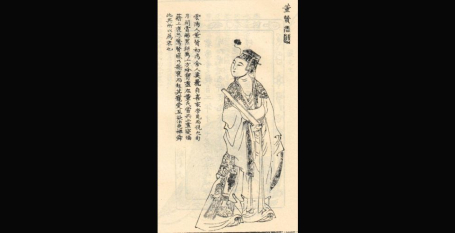Dong Xian was a Han Dynasty politician who quickly rose from obscurity as a minor official to being the most powerful official in the imperial administration of Emperor Ai.
Most scholars agree that Dong’s quick career advancement came mostly because of his personal relationship with Emperor Ai – likely a sexual one – rather than a demonstration of abilities.
The passion of the cut sleeve
An idiomatic term for homosexuality in Chinese is duanxiu zhi pi – which translates as “passion of the cut sleeve” – this is derived from an episode involving Dong and Emperor Ai.
They often slept together on the same straw mat.
One afternoon, after Emperor Ai woke up from a nap, Dong was still sleeping, and Emperor Ai’s sleeve was stuck under Dong’s head. Rather than waking Dong up, Emperor Ai cut off his sleeve to allow Dong to continue to sleep without disturbance.
Early career
It’s estimated that Dong Xian was born around the year 23 BCE.
It is unclear when Dong became a court official, but it is known that early in Emperor Ai’s reign (which lasted from 7 BCE to 1 BCE), Dong was a minor imperial secretary.
Relationship with Emperor Ai
By 4 BCE, at the age of 19, Dong Xian was an imperial attendant and the director of imperial equine operations. His relationship with Emperor Ai allowed him to quickly increase his power and prestige.
According to contemporary reports, whenever Emperor Ai visited places outside the palace, Dong would accompany him, and once Emperor Ai returned to the palace, he would attend to the emperor.
Emperor Ai rewarded Dong with gifts and large sums of money. Priveleges were also extended to Dong’s wider family.
Death
In the summer of 1 BCE, Emperor Ai suddenly died without an heir.
Grand Empress Dowager Wang seized the opportunity to move against Dong. She transferred the command of the imperial guard from Dong to her nephew, Wang Mang.
Dong was prohibited from entering the palace, and was relieved of his post the next day.
That night, he committed suicide.

